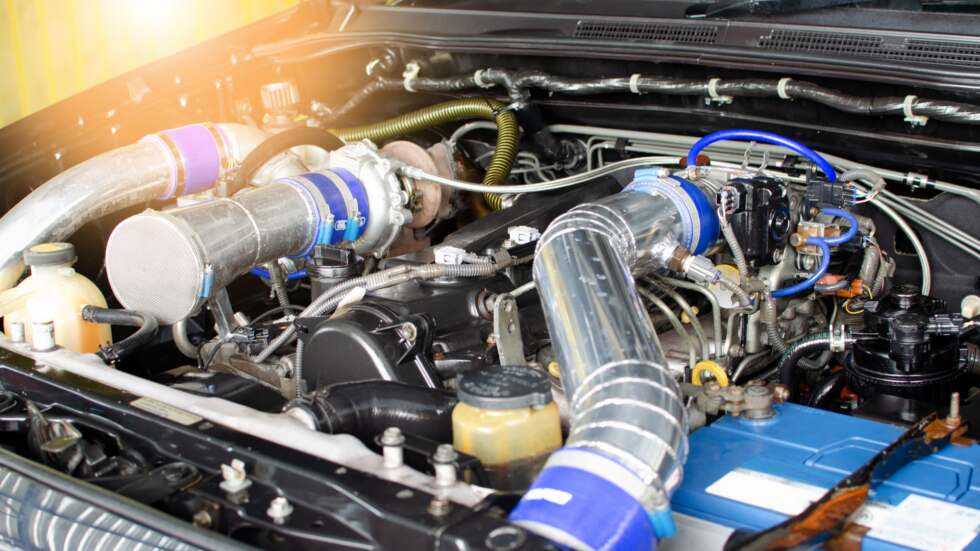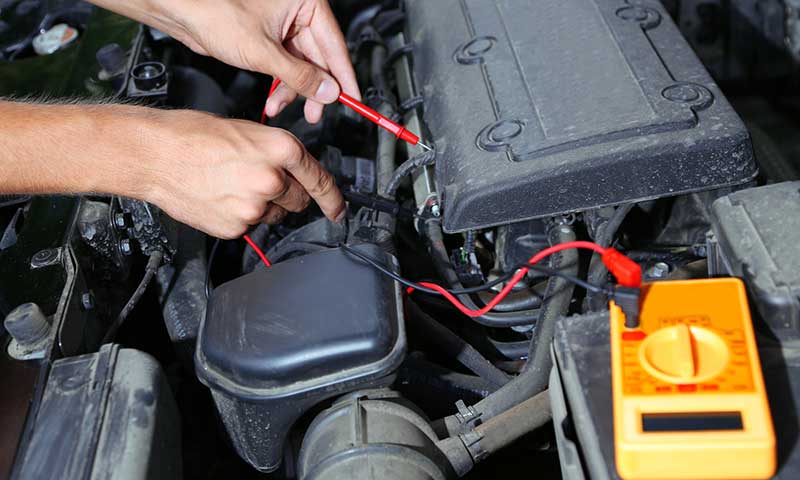Car repairs are stressful enough, not knowing who to turn to for trustworthy service makes the experience even worse. Unfortunately, some repair shops are infamous for overcharging and misleading customers. Don’t fall victim to one of these shops who give mechanics a bad names.
Finding a reliable auto repair shop:
Whether you are new to the area or just switching shops, follow these tips to find a mechanic who will provide reliable and trustworthy service when those pesky repairs are needed:
1. Check for certifications
Any good repair shop will only hire mechanics who are ASE (Automotive Service Excellence) Certified. So, the first step in finding a good repair shop is to check their certifications and ask what their mechanics are proficient in.
These certifications are often times displayed on a wall in the front office. If not, ask the owner for proof of certification. You might also want to take note of any awards displayed in the shop. Community awards are always a sign of a trustworthy and knowledgeable mechanic.
2. Don’t fall for scare tactics
If an auto repair shop is trying to convince you that your car is a death trap, consider getting a second opinion from another shop. Some mechanics will try to scare you into getting your car repaired at their shop, but a good mechanic doesn’t need to use such tactics.
If something doesn’t seem quite right or you feel pressured to repair your car, take it somewhere else to see if your suspicions are warranted.
3. Take a look around the shop
Before giving them your car, make sure your mechanic keeps a clean and organized shop. While some grease and grime should be expected, a good repair shop will have a tidy appearance and clean garage.
The staff should also be friendly and helpful. A dependable repair shop will be happy to answer your questions, show you around, and introduce you to employees. During your visit, talk to other customers at the repair shop and ask about any past experiences they’ve had there.

4. Read reviews
If you want to know what customers think about a repair shop, simply type their name into Google and see what pops up. Also, check for reviews/complaints on websites like BBB (Better Business Bureau), Yelp!, and Facebook. This should quickly give you an idea of the kind of service they offer to customers.
However, it’s important to read the reviews with a grain of salt. If every review is bad then that is obviously a red flag, but a few negative reviews can be expected. In many cases, these negative reviews are simply the result of a grumpy customer.
5. Ask for your old parts
Don’t be afraid to ask for your old parts after your car has been repaired. These parts should display obvious signs of wear and tear. A good repair shop will be happy to show you what they replaced, and explain anything that is unclear.
Some mechanics will replace parts that don’t need replacing in order to increase your bill. If your old parts do not show signs of damage and your mechanic doesn’t have good explanation, find a different shop and share your experience to spread the word.
Knowing how to find a trustworthy auto repair shop is essential for anybody who owns a car. Follow these tips listed here to avoid being swindled out of your hard earned money by a shady mechanic.
FAQ: Finding a Reliable Auto Repair Shop
1. Why is it important to check for certifications when choosing an auto repair shop?
Checking for certifications ensures that the mechanics are ASE (Automotive Service Excellence) certified, indicating proficiency in their field. This guarantees quality service and expertise, providing peace of mind to customers regarding the competence of the repair shop.
2. How can I avoid falling for scare tactics at auto repair shops?
Avoiding scare tactics involves seeking a second opinion if a repair shop exaggerates the severity of your car’s issues. Trustworthy mechanics focus on transparent communication and informed decision-making rather than using fear tactics to upsell unnecessary repairs.
3. What should I look for when inspecting an auto repair shop?
Inspecting the shop’s cleanliness and organization is crucial. A tidy environment reflects professionalism and attention to detail, while friendly staff and positive interactions with customers indicate a reputable establishment committed to customer satisfaction.
4. How can online reviews help in choosing an auto repair shop?
Online reviews on platforms like BBB, Yelp!, and Facebook offer insights into other customers’ experiences with the repair shop. While it’s essential to consider both positive and negative reviews, consistent negative feedback signals potential issues to address.
5. Why is asking for old parts after repairs important?
Requesting old parts allows customers to verify the necessity of repairs and ensures transparency in the service provided. It serves as a safeguard against unnecessary replacements and helps build trust between customers and mechanics.
6. What role do community awards play in identifying reliable auto repair shops?
Community awards displayed in repair shops signify recognition for outstanding service and customer satisfaction. These accolades serve as indicators of trustworthiness and expertise, guiding customers in their decision-making process.
7. How can I discern genuine customer feedback from biased reviews?
While reading reviews, it’s essential to evaluate the overall sentiment and consider the authenticity of feedback. A mix of positive and negative reviews provides a balanced perspective, allowing customers to make informed judgments.
8. Why is it advisable to talk to other customers at the repair shop?
Engaging with other customers offers firsthand insights into their experiences and satisfaction levels with the repair shop. Conversations with fellow patrons provide valuable feedback and contribute to making informed decisions about service quality.
9. What should I do if I suspect unnecessary repairs at an auto shop?
If doubts arise regarding the necessity of repairs, seeking a second opinion from another reputable repair shop is recommended. Transparency and open communication are essential in addressing concerns and ensuring fair treatment.
10. How can sharing experiences contribute to identifying trustworthy auto repair shops?
Sharing experiences with friends, family, or online communities helps spread awareness about reputable repair shops and fosters a culture of accountability. By sharing feedback and recommendations, customers empower others to make informed choices and avoid unscrupulous practices in the industry.



